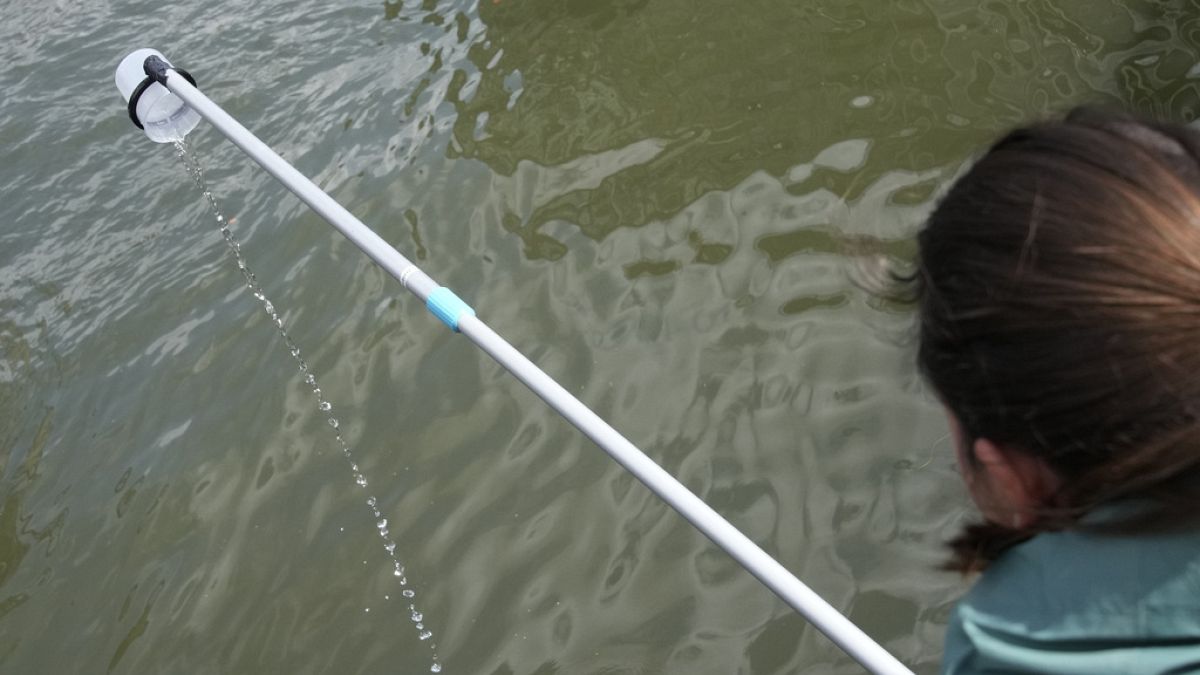Negotiating mandate for the Water Framework Directive’s adoption will be the basis for discussions to start between EU co-legislators, sparking green fears that EU rules protecting water are being dismantled.
A list of chemical substances affecting water pollution agreed by ambassadors from the member states as an opening salvo in negotiations over an update to Water Farmework Directive has been slammed by green campaigners who see it as evidence of backtracking on the Green Deal.
Member states will be asked to take measures to meet the quality standards for the additional pollutants — including some so-called “forever chemicals” (PFAS), pharmaceuticals and pesticides — and to make their monitoring data available more often, according to the agreed text recently sealed by the EU Belgian Presidency.
However, the text features proposals pushed by Denmark, Finland, Germany, Luxembourg and the Netherlands to change the definition of ‘water deterioration’, unleashing the fury of environmentalists who consider this flexibility will have a “short-term negative impact” on water bodies and “deterioration in water quality”.
These countries argued that if the status of a given water quality element or substance deteriorates for short periods and is expected to recover quickly, that should not qualify.
Subscribe here to stay informed on the latest EU policy development with our newsletter, “The Policy Briefing”, your weekly insight on European rulemaking, key events and data trends.
An EU diplomat told Euronews that while his country supported ambitious water policy, it was concerned the previous definition could “hinder investments in the green transition”.
In October 2022 the EU executive proposed the first update in nearly a decade to a watch list of pollutants that affect surface and groundwater across Europe, under the Water Framework Directive, the EU’s main law for protecting coastal and freshwaters, which requires EU countries bring Europe’s waters back to health by 2027.
But the Council’s agreement — which will be the basis for EU inter-institutional discussions with the European Parliament, the Commission — pushed back the legal deadline for reaching compliance to 2039, with options to further delay until 2051.
Additionally, for the next ten years, member states would only be obliged to monitor the presence of new pollutants in water, rather than taking pragmatic action to restore water conditions.
Re-elected lawmaker Ville Niinistö (Finland/Greens) expressed outrage at what he described as an attempt to water down environmental safeguards instead of “phasing out PFAS, glyphosate and pharmaceutical emissions as fast as possible”.
“It is clear that the Parliament must continue to push for additional environmental protection against chemical and nutrient pollution and we will not allow the Council to endanger the health of our citizens and the environment in the final negotiations of this important legislation,” Niinistö told Euronews.
The Commission was expected to publish in March a ‘water resilience’ initiative in response to increasing periods of drought linked to climate change but decided to take the commitment from its agenda ahead of the EU elections, reportedly fearing the fury of farmers’ protests and trying to soothe the anti-green backlash that clouded the end of the legislative term.
Sara Johansson, senior policy officer at the NGO European Environmental Bureau, regretted the outcome of the negotiating mandate saying governments want to “give themselves legal rights to pollute water for the next decades” while Manon Rouby, policy officer & legal adviser at Pesticide Action Network (PAN) Europe, called out EU countries’ “refusal to take ambitious actions against EU-wide chemical water pollution”.
The upcoming EU Hungarian presidency, starting from 1 July, will mediate the talks between the new Parliament, member states and the EU executive. Negotiations will start once the EU’s institutions composition is settled.

